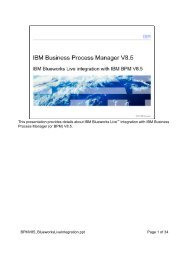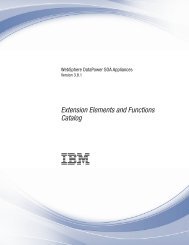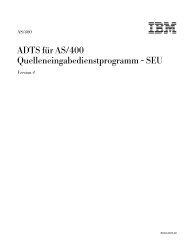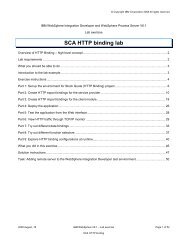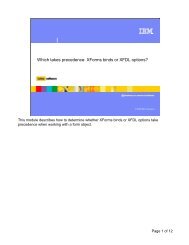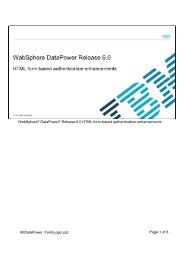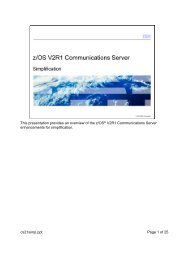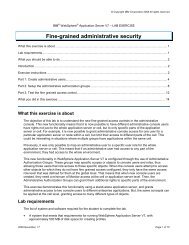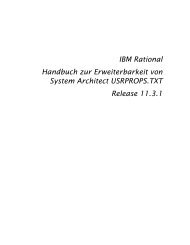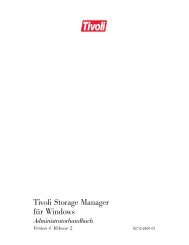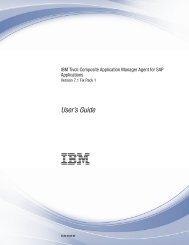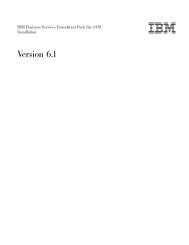z/TPF Program Management - IBM
z/TPF Program Management - IBM
z/TPF Program Management - IBM
You also want an ePaper? Increase the reach of your titles
YUMPU automatically turns print PDFs into web optimized ePapers that Google loves.
statement section. Therefore, you must define the CWD parameter<br />
before you can specify a relative path.<br />
If you specify a specific location for a program, this location overrides any<br />
default location that may have been defined for the @IPL control statement<br />
section; that is, only the specific location is searched for the program. If the<br />
program is not found in the specific location, an error occurs.<br />
CWD<br />
is the value specified for the CWD parameter in the @DEFINE control<br />
statement section. If you do not specify a default location or a specific location,<br />
this is the only location that is searched.<br />
IPLA<br />
loads the IPLA program.<br />
IPLB<br />
loads the IPLB program.<br />
version<br />
is the 1- to 2-character alphanumeric version code for the program.<br />
.ext<br />
specifies an extension of the full program name as created by the linker, where<br />
ext is the appropriate extension. For example, if the linker creates a program<br />
called ipla51.so, the .so portion of the name is optional.<br />
(progcmt)<br />
appends a comment for the program specified (either IPLA or IPLB) that is<br />
displayed in the output report, where progcmt is the text that is appended.<br />
@@IPLA<br />
patches the IPLA program.<br />
Note: You must load the IPLA program in the current @IPL control statement<br />
section before you can patch it.<br />
@@IPLB<br />
patches the IPLB program.<br />
Note: You must load the IPLB program in the current @IPL control statement<br />
section before you can patch it.<br />
rsa<br />
is the 1- to 6-digit hexadecimal relative starting address in the program. The<br />
relative starting address specifies the offset into the program where the patch is<br />
applied.<br />
newdata<br />
is the new data (or patch) that will replace the old data in the program,<br />
beginning at the relative starting address. The new data must be an even<br />
number of hexadecimal digits and cannot exceed 32 digits (16 bytes).<br />
valdata-olddata<br />
validates the data that is replaced by newdata, where olddata is an even<br />
number in hexadecimal format that does not exceed 32 digits (16 bytes). The<br />
data specified for olddata must match what is currently in the program. If it does<br />
not, the data in the program is not changed and an error occurs. If it does, the<br />
data in the program is replaced by newdata. For example, this parameter can<br />
help to verify that your patch is starting at the correct relative starting address.<br />
z/<strong>TPF</strong> offline loader input file control statements 147



